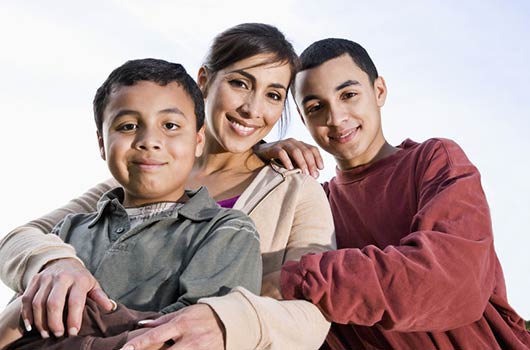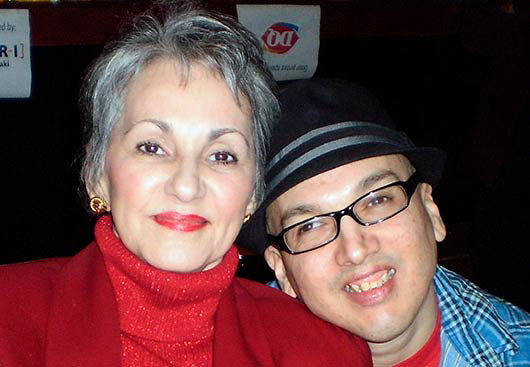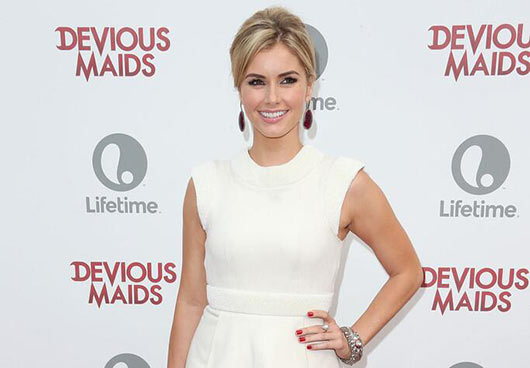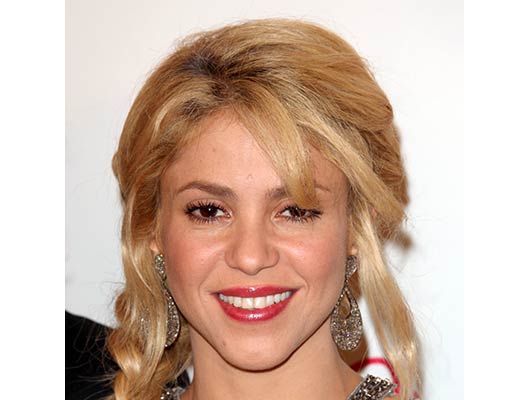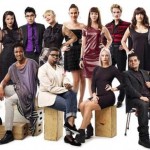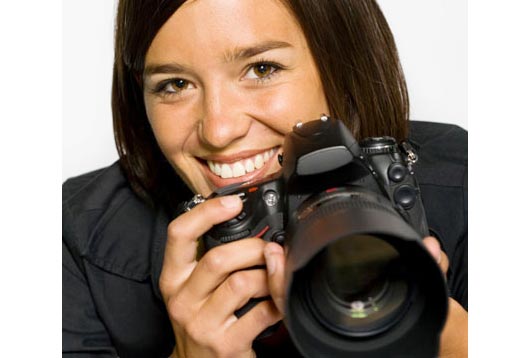
In the mid-1990s I was covering a political rally in California with a Latina colleague when a Brown Beret asked a version of the question we’d both heard for years: “We hear you guys in Texas call yourselves Hispanics. What’s up with that?” He meant, of course, as opposed to calling ourselves Chicanos. And he was making a generalization; he had no clue how we chose to identify ourselves. Non-Latinos often asked me if I saw myself as Mexican, American, or a combination of both. Perhaps I preferred Latina, or as this young man assumed, Hispanic. The question of identity has dogged people of color in this country for generations. If only identity were really as simple as a name.
Those around us squint at the shape of our features and the hue of our skin, and ask, “What are you?” But if you happen to be a woman, the identity issue becomes twofold. Not only are you seen by mainstream society as “the other,” you’re probably also seen as “less than” by your male counterparts. And the latter is true across the globe. No wonder for a great chunk of my life the question “What am I?” has been colored not by the way I define myself, but by the way others see me. It’s difficult to break from the strongholds of labels based on gender, culture, race and economic status—hard to see yourself as valuable and human when you can’t hear your voice above the roar of those who label you. My life has been an evolution of struggling to hear myself above that din.
A TANGIBLE OTHERNESS
While growing up on the border my “otherness” manifested itself in tangibles. My Caucasian peers seemed to have more money, bigger houses, and nicer cars in which to test for their drivers’ licenses. They had ski trips, and I had vacations to visit family across the Mexican border. My difference from them was visible in our cultural symbols, too. My friends had slumber parties where they played truth-or-dare and rock music. In my home, we kicked off our shoes and danced to corridos and cumbias. My friends knew from Day One where they would go to college—their parents’ alma maters. Although they’d had only an elementary school education in another country, my parents insisted I go to college. Where my siblings and I went to college was largely dictated by the scholarships, loans, jobs we could get, and what our parents’ bank account could afford. And to a certain degree, in my case, by not knowing that I had choices.
When I began my career, I was one of a handful of Latina photojournalists working at large newspapers across the country. I saw the same few of them at industry conferences year in and year out. There were men photographers of color, too, who I respected tremendously because they faced and won some of the same uphill battles. But women bond; we knew intimately what it was like to be in one another’s shoes. Still worse than looking across the landscape of the news business and seeing it devoid of Latinos was the surprise on the faces of people I was assigned to photograph. It seemed to register in two steps: Oh, you’re … Mexican? And…a woman!
Some of them marveled aloud. One man made small talk while I set up lights and made his portrait. When he learned I was from El Paso he said, “Oh, but you speak English really well.”
“Oh … thank you,” I sputtered, and made a mental note to hurry up and get this done. But he wasn’t finished, adding, “And I bet you worked real hard at it, too.”
CAREER CHOICES AND CLASHES
As if the issue of cultural identity weren’t enough, there were the barriers faced by all career women, including the assumptions of our male peers and bosses that we would dutifully take our husbands’ names and forego job promotions or positions that required relocation. The assumption was that our career choices and desires would come in second to those of our spouses. When a colleague asked why I wouldn’t take my husband’s last name as my own, I bit my tongue in order to stop myself from saying something too sarcastic. Apparently I didn’t bite hard enough, because what came out of my mouth was, “Because I got married, not adopted.”
Another peer and I once discussed the possibility that our paper might create a photo position based in Mexico, a job he dearly wanted. Mexico: This was the land that cradled the bones of my ancestors. The land where my mother, in her youth, galloped sidesaddle on horseback and my uncles herded cattle under the sun. The land where others wouldn’t need to ask, “What are you?” because they could read the answer in the planes of my face and hear it in the precise syllables of my Spanish.
I told my peer if that job were to come open, I wanted a shot at it, too. The opportunity to be an international correspondent was appealing.
“But you’re married,” he said.
“So are you,” I countered, not realizing until that moment that he had a very different view of married women’s choices. I felt a moment of empathy for his wife, whose role he assumed was to go wherever his career took him.
OBJECTIFICATION OF WOMEN
But possibly the most dehumanizing perception I’ve faced is one that still, even as I enter middle age, has the power to make me cringe. Maybe because it’s so pervasive—in social interactions, in my favorite TV shows, in songs and movies—that even I sometimes have difficulty recognizing it when it crops ups. This perception combined my culture and gender and rendered it into something base. I ran smack into it for the first time when, loaded with cameras and lenses, I stepped onto a college field to photograph a baseball game. Some of the team broke into catcalls and whistles: “Oh, salsa! I want some salsa!” It took me a moment to realize that they were talking about me. That the game was sparsely attended made this no less humiliating.
Another time, I was assigned to photograph a rodeo executive. He was on crutches, and when I posed him for a portrait, he laughed and told me that if he weren’t injured he’d chase me all around the trailer on which he was leaning. Another cowboy, upon learning that I was married and uninterested in cheating on my husband, asked if I’d hold still so he could cheat on him.
Confused yet? I was. I considered myself a working professional. But other people alternately saw me as a brown-skinned woman who miraculously spoke English, as some kind of spicy piece, and as something to be coveted and pursued.
That confusion eventually gave rise to anger, so that when people point-blank asked, “Where are you from?” I played dumb, wondering which label they wanted me to wear today. Chattel? Temptress? Good, assimilated Mexican?
“From here. I’m American,” I’d say warily.
“No, I mean, what are you? What are your ethnic roots?”
I’d feign surprise, then explain that my parents were immigrants from Mexico, and I was born here.
NOT WHAT, BUT WHO I AM
I’d like to say that times have changed, that society has evolved to the point where I no longer face those questions and attitudes. I’d like to tell you that I no longer struggle to break free from the labels that society slaps on me, and that bigotry, sexism and objectification are all dead and buried. But we all know that’s not true. People still make assumptions about me based on gender, the color of my skin, the languages I speak, and I still invariably stiffen when they ask where I’m from, or what I am.
One thing, however, has changed. Me.
As counterintuitive as it may seem, I now know that the assumptions people make about me actually have very little to do with me. I’ve learned that you can strip the power from a person’s questions and assumptions by reflecting them back: “Why does my identity matter so much to you? Does my taking or not taking my husband’s last name significantly affect you? Does my ability to speak two languages say something about you? And, how exactly, do you think my cultural heritage is related to my sexual prowess? Do you honestly believe a roll in the hay would be different with me than with a non-Latina? Then again, maybe I’m making too much of it, maybe you’re just an average, everyday kind of pig.”
How I wish that I’d had more courage in my youth. Instead of getting angry and flustered, I would have calmly turned the tables on my questioners and held a mirror up to their faces, propriety be damned. Today, I don’t see my identity as a question of “what I am,” but a question of “who I am.” Latina, daughter, wife, lover, niece, cousin, godmother, friend, writer, photographer, caregiver, neighbor, thinker—I am all of these things, and others as well. But the fact that I am human eclipses them all. Ultimately, none of these labels matter as much as the simple fact that I am.



